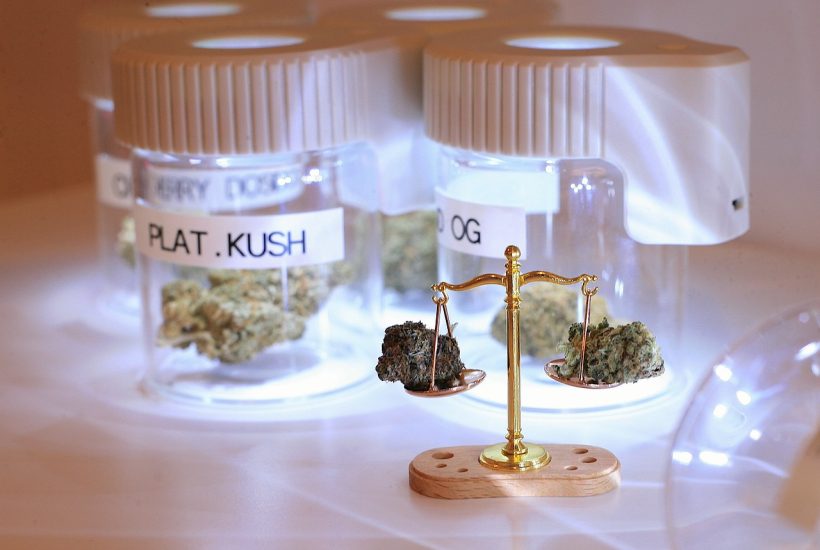Cannabis
FDA Refuses to Legalize CBD-Based Food Products Due to Safety Concerns
The FDA abdicates from pursuing rulemaking to allow the use of CBD in dietary supplements or conventional foods, as it cannot find adequate evidence to determine how much CBD can be consumed and for how long before it causes harm. The FDA will continue to act on CBD and other cannabis-derived products to protect the public, in coordination with state regulatory partners where appropriate.

The Food and Drug Administration (FDA) has rejected starting the process of legalizing CBD in food products, as it does not consider its safety concerns satisfied. The agency, which drew its conclusions through information from the drug Epidiolex, said it was available to move forward for robust regulation with the U.S. Congress.
The FDA announced in a statement signed by Janet Woodcock, Principal Deputy Commissioner, that a new regulatory paradigm for CBD is needed that balances individuals’ desire for access to CBD products with the oversight needed to manage risks. The agency says it is prepared to work on the issue, but passes the ball to Congress. According to the US regulator, CBD use raises several safety concerns, especially in long-term use, which makes CBD regulation incompatible with current legislation.
The agency also denied petitions from citizens requiring the agency to conduct regulations on its own that would allow CBD products to be marketed as dietary products. With the decision, the FDA passes the responsibility to Congress, on whom will depend the initiative to develop a multi-agency strategy for regulating these products.
Read more on the subject and find the most important cannabis news from around the world with the Hemp.im mobile app.
FDA reviews risks through the Epidiolex bulletin
The FDA claims that a new regulatory strategy is needed that provides consumers with safeguards and the oversight needed to manage and minimize risks related to CBD products. Some of these risk management tools may include clear labels, prevention of contaminants, limits on CBD percentages, and prohibitions, such as minimum purchase age, to mitigate the risk of ingestion by children.
It should be noted that the galloping increase in CBD consumption in the United States (increased from 8% to 26% by 2022), stems from the passage of the Farm Bill, which promoted and boosted industrial hemp farming and the consequent appearance of these products. Despite this, the agency claims to have drawn on existing literature as well as the public bulletin for Epidiolex, a CBD-based drug used for refractory epilepsy. Despite the FDA’s concerns about children taking CBD, the recipients of Epidiolex’s prescription are, precisely, children (ages two and up).
The working group, which closely examined studies related to the CBD-based drug, Epidiolex, published scientific literature, information submitted in the public bulletin, as well as other studies conducted and commissioned by the FDA. Given the available evidence, and knowing that CBD consumption takes on proportions never before seen in the US, the FDA assures that it is not apparent that CBD products can live up to the safety standards for dietary supplements or dietary supplements.
FDA Abdicates from Creating Regulations for CBD
The FDA thus abdicates from pursuing rulemaking to allow the use of CBD in dietary supplements or conventional foods, as it cannot find adequate evidence to determine how much CBD can be consumed and for how long before it causes harm.
The FDA will continue to take action on CBD and other cannabis-derived products to protect the public, in coordination with state regulatory partners where appropriate. The agency says it will remain diligent in monitoring the market, identifying products that pose risks, and acting within its purview.
The cannabis industry is disappointed
The National Cannabis Industry Association, showed their disappointment, via a statement, with the outcome of this extended FDA study, which has been coming since 2019, but they hope the decision will put more pressure on Congress to sensibly regulate CBD and other cannabis products.
“Today’s FDA announcement underscores the urgent need for Congress and the government to take swift action to modernize federal cannabis policy and regulate CBD and other products appropriately and in harmony with the vast majority of states that have already legalized cannabis in some form,” said Aaron Smith, CEO and co-founder of the National Cannabis Industry Association (NCIA) who assures that “moving forward with bipartisan federal cannabis reform this year would be good public health policy and good politics.”
__
(Featured image by sergeitokmakov via Pixabay)
DISCLAIMER: This article was written by a third party contributor and does not reflect the opinion of Born2Invest, its management, staff or its associates. Please review our disclaimer for more information.
This article may include forward-looking statements. These forward-looking statements generally are identified by the words “believe,” “project,” “estimate,” “become,” “plan,” “will,” and similar expressions. These forward-looking statements involve known and unknown risks as well as uncertainties, including those discussed in the following cautionary statements and elsewhere in this article and on this site. Although the Company may believe that its expectations are based on reasonable assumptions, the actual results that the Company may achieve may differ materially from any forward-looking statements, which reflect the opinions of the management of the Company only as of the date hereof. Additionally, please make sure to read these important disclosures.
First published in CANNA REPORTER, a third-party contributor translated and adapted the article from the original. In case of discrepancy, the original will prevail.
Although we made reasonable efforts to provide accurate translations, some parts may be incorrect. Born2Invest assumes no responsibility for errors, omissions or ambiguities in the translations provided on this website. Any person or entity relying on translated content does so at their own risk. Born2Invest is not responsible for losses caused by such reliance on the accuracy or reliability of translated information. If you wish to report an error or inaccuracy in the translation, we encourage you to contact us.

-

 Impact Investing1 week ago
Impact Investing1 week agoVernazza Autogru Secures €5M Green Loan to Drive Sustainable Innovation in Heavy Transport
-

 Markets4 days ago
Markets4 days agoRice Market Slips Amid USDA Revisions and Quality Concerns
-

 Business2 weeks ago
Business2 weeks agoLegal Process for Dividing Real Estate Inheritance
-

 Fintech13 hours ago
Fintech13 hours agoJPMorgan’s Data Fees Shake Fintech: PayPal Takes a Hit
























